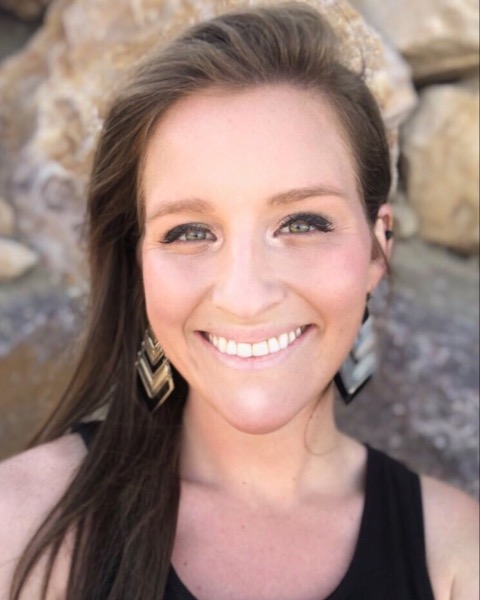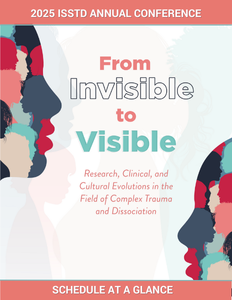Back
Single Paper or Case Study
Paper Session #2
An Educational Issue Made Visible: The Dissociation Education Experiences of US Counselors
Sunday, March 16, 2025
8:30 AM – 10:00 AM US Eastern Time
Learning Level: Beginning

Audrey Zatopek, PhD, MA, LPC-S, LCDC
Psychotherapist and Owner; Counselor Educator
Mental Health Institute; Midwestern State University
Fulshear, Texas, United States
Abstract
Through completion of a quantitative study, this novel study aims to fill an identified gap in research and make visible licensed counselors' (e.g., Licensed Professional Counselor, Licensed Marriage and Family Therapist, or a variation of these licenses) experiences of receiving dissociation education during master’s level counseling coursework. Understanding the incidence of dissociation education received during master’s coursework could promote increased competency amongst master’s level counselors and counselor educators about dissociative disorders. Additionally, it could better prepare counselors, supervisors, and educators for trauma informed practice. Furthermore, discovery of the incidence of dissociation education could lead to the increased visibility of the dissociative population. Both increased competency and improved counselor education coursework could lead to enhanced client care as well as client outcomes in counseling work. Given that dissociative disorders are comorbid with a variety of mental health disorders and that dissociative symptoms are prevalent among a variety of mental health disorders, it is imperative that counselors are adequately educated on dissociative disorders and symptoms and that clinical mental health service providers, supervisors, and educators are aware of this issue. To discover licensed counselors' experiences of receiving dissociation education during master’s level counseling coursework, an online survey was completed by 362 counselors licensed to practice in the United States. To collect data for this dissertation study, a survey method using purposive, convenience, and snowball sampling was implemented. Following consenting to participate through the Qualtrics survey, participants answered various questions about dissociative disorders, measures for assessing dissociation, and their perspectives about the amount of education they believe they received on dissociation. Findings indicate that counselors perceived the extent of their dissociation education to be both low and lower than they would like, few dissociative disorders were known, and few measures for assessing dissociation. Furthermore, findings demonstrated that none of the independent variables had a significant relationship with the extent of dissociation education that participants received. Through identification of this issue, the dissociative population and a critical gap in counselor education are made more visible.
Through completion of a quantitative study, this novel study aims to fill an identified gap in research and make visible licensed counselors' (e.g., Licensed Professional Counselor, Licensed Marriage and Family Therapist, or a variation of these licenses) experiences of receiving dissociation education during master’s level counseling coursework. Understanding the incidence of dissociation education received during master’s coursework could promote increased competency amongst master’s level counselors and counselor educators about dissociative disorders. Additionally, it could better prepare counselors, supervisors, and educators for trauma informed practice. Furthermore, discovery of the incidence of dissociation education could lead to the increased visibility of the dissociative population. Both increased competency and improved counselor education coursework could lead to enhanced client care as well as client outcomes in counseling work. Given that dissociative disorders are comorbid with a variety of mental health disorders and that dissociative symptoms are prevalent among a variety of mental health disorders, it is imperative that counselors are adequately educated on dissociative disorders and symptoms and that clinical mental health service providers, supervisors, and educators are aware of this issue. To discover licensed counselors' experiences of receiving dissociation education during master’s level counseling coursework, an online survey was completed by 362 counselors licensed to practice in the United States. To collect data for this dissertation study, a survey method using purposive, convenience, and snowball sampling was implemented. Following consenting to participate through the Qualtrics survey, participants answered various questions about dissociative disorders, measures for assessing dissociation, and their perspectives about the amount of education they believe they received on dissociation. Findings indicate that counselors perceived the extent of their dissociation education to be both low and lower than they would like, few dissociative disorders were known, and few measures for assessing dissociation. Furthermore, findings demonstrated that none of the independent variables had a significant relationship with the extent of dissociation education that participants received. Through identification of this issue, the dissociative population and a critical gap in counselor education are made more visible.
Learning Objectives:
At the conclusion of this session participants will be able to:
- Describe the spectrum of dissociation and dissociative disorders
- Explain the factors contributing to the lack of dissociation education of clinical mental health professionals
- Clearly articulate the main results of the study, highlighting significant data and conclusions drawn from the study
- Identify how the discussed study’s findings may be applied in clinical, supervision, and education settings as well as to future research in the field of trauma and dissociation
- Discuss any limitations or constraints of the study, including any areas of uncertainty

